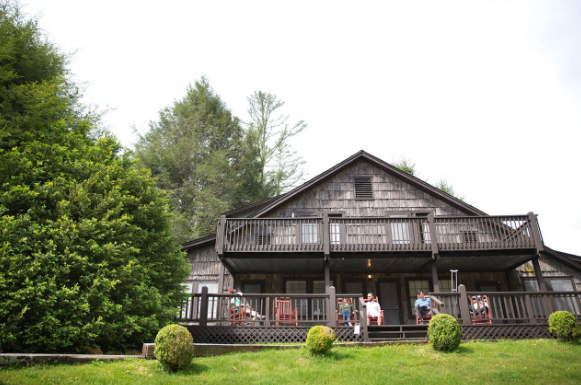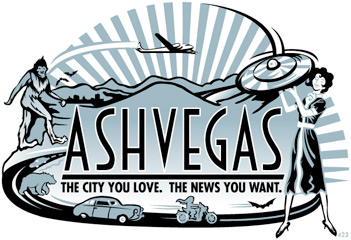Jason Sandford
Jason Sandford is a reporter, writer, blogger and photographer interested in all things Asheville.
 On July 10, Western North Carolina craft brewery owners and their representatives met with representatives of the N.C. Alcohol Law Enforcement agency (Special Agent in Charge Stacy J. Cox), the state Alcoholic Beverage Control Commission (Chief Administrator Bob Hamilton and Chief Legal Counsel Renee Cowick) and two attorneys from the Asheville office Ward and Smith (Derek Allen and Hayley Wells). About 60 people in all gathered at the Mill Room to meet and talk following recent N.C. ALE enforcement actions.
On July 10, Western North Carolina craft brewery owners and their representatives met with representatives of the N.C. Alcohol Law Enforcement agency (Special Agent in Charge Stacy J. Cox), the state Alcoholic Beverage Control Commission (Chief Administrator Bob Hamilton and Chief Legal Counsel Renee Cowick) and two attorneys from the Asheville office Ward and Smith (Derek Allen and Hayley Wells). About 60 people in all gathered at the Mill Room to meet and talk following recent N.C. ALE enforcement actions.
The meeting lasted about three and a half hours. Allen described the gathering as an “unprecedented” meeting of the brewery industry and leaders with ALE and ABC. The meeting was called in the wake of significant enforcement action taken by ALE agents earlier this year. In early spring, N.C. ALE agents had discussions with nine local breweries about potential violations of alcohol law governing cooperative advertising around the much advertised Race to the Taps running series. The discussions ended in verbal warnings delivered to the participating breweries. The in late spring, five N.C. ALE agents descended on Asheville’s Beer City Festival, where they allege they observed numerous alcohol law violations. The agents wrote 10 violation reports which they sent to the ABC Commission for possible action, action that could include fines and the suspension or revocation of alcohol permits.
I had asked to attend, but was not allowed entry. I followed up a couple of days later and met with Allen and Wells. What follows are highlights of that conversation.
Purpose of the meeting
Allen said the purpose of the meeting was to be sure that brewers heard and understood how state alcohol regulations would be enforced. The group talked about everything from beer flights and sensory tastings to festival management, he said. ABC and ALE officials went through the scope of all the things they do and made it clear that their intention was not to stifle the industry, he said. Wells reiterated that, adding that ABC and ALE officials said their focus was “health, safety and welfare.”
Brewery tours
Allen said the group discussed both free, on-site brewery tours and paid tours. For free on-site tours, breweries are allowed to give free samples, but they must be consumed on the brewery premises. For paid tours, the cost of that tour includes the cost of beer that is served, and that beer must be consumed on the retail side of the business, he said. Applying that law to breweries like Sierra Nevada in Mills River is easy, Allen says, because the line between the manufacturing brewery and retail area is clear. But at smaller breweries, that application can be trickier, he said.
Sensory tasting
The state’s sensory tasting rule is a retail rule that is being applied to a brewery manufacturing situation, Allen said, and can a rule that ALE the ABC understands “is a broken rule” and one their worth fixing. In a retail situation, a server can taste a new product that is going on tap, and if someone is responsible for ordering a product, they are allowed to taste that while working. On the manufacturing side, brewers want the ability to taste their product while they work, and ALE officials have advised that no more than 2 ounces at at time is allowed, and no more than 8 ounces in a day. “Don’t abuse it” was the message from ALE, Allen said.
Flights
On the retail side of a brewery business, a flight of five 4-ounce pours is fine if the tasting room serves a 20-ounce pour normally, but a flight of four 4-ounce pours is better, according to ALE officials, Allen said, with the rationale being that the cumulative number of ounces of the flight should not exceed the typical number of ounces in single beer.
Beer City enforcement action
The message that N.C. ALE agents delivered at the meeting regarding the enforcement actions at Asheville’s Beer City Festival in May was straightforward, according to Allen: the actions were an example of agents looking out for the health, safety and welfare of the public. The ancillary message: people serving beer are not allowed to drink beer, Allen said.
Cooperative advertising
North Carolina alcohol laws regarding cooperative advertising state that brewers cannot directly or indirectly cooperate with a retailer to promote the sale of alcohol or their business, according to Allen. The issue came to the forefront earlier this year regarding advertising of the Race to the Taps running series at nine local breweries. Some advertising materials included retailers, and ALE agents had discussions with those breweries regarding that issue. In the end, it was settled with no warnings being issued. Breweries can apply for, and be granted, an exception to cooperative advertising rules.























